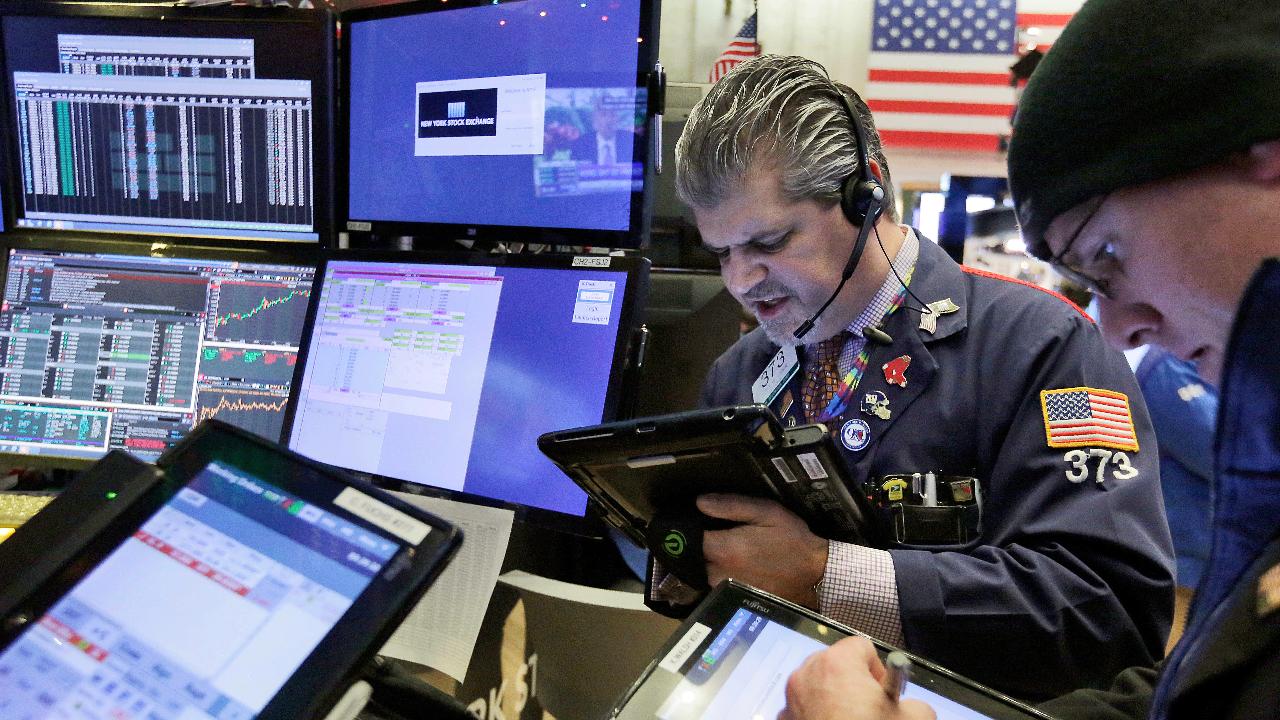Trump must call off escalating US-China trade war before it's too late
The Trump administration’s impulse to wage trade wars with major economic powers -- steel, aluminum, autos with Europe and Japan, and essentially every product under the sun with China -- are dimming the prospect of what promised to be a lengthy American economic renaissance.
Financial markets don’t like tariffs and they hate trade wars. Increasing tariffs on China is a terrible remedy for correcting Beijing’s misbehavior on intellectual property rights, hidden subsidies and state-owned enterprises (SOEs).
Tariffs catch American consumers in the crossfire by raising prices. They badly erode business confidence and threaten to undo all the good from tax reform for employment and the economy.
The truth is that Chinese-American trade is a pillar of the international economic landscape, facilitating high growth for both superpowers and benefiting the rest of the world. We need a comprehensive agreement with China that addresses rightful U.S. concerns, not a trade war.
It’s clear the president wants to deal roughly with China but consider the cost. Contrary to Trump’s statements that China pays the tariffs, American consumers bear the brunt.
One estimate by academics from Yale, UCLA, UC Berkeley, and Columbia calculate that tariffs already added $69 billion in annual costs for Americans consumers, before the latest escalation. The National Bureau of Economic Research says that an all-out trade war could eventually cost more than $300 billion.
Estimates indicate that the average American household will pay at least $500 extra this year because of tariffs already imposed. Escalation to an all-out trade war will raise that tab to $2,200.
Jobs will be hit hard, too, with upwards of 455,000 jobs put at risk because of this costly conflict. In the end, tariffs hit consumers hardest and compel American firms to pull back on expansion and innovation.
China’s retaliatory tariffs will also negatively affect America’s energy exports to China. The Energy Information Administration reported that U.S. oil exports ultimately plummeted in 2018 since China’s importers essentially shunned American energy producers.
The retaliatory tariffs will also jeopardize American investment in liquefied natural gas (LNG) and consequently restrict America’s contribution to the growing LNG market. The damage to farm exports is well known and at best the administration can offer temporary relief through stockpiling programs.
To be sure, the U.S. must have a strategy for China. But China does not pose an “existential threat” to America. If it did, an approach much stronger than tariffs would be warranted.
Making China an enemy is a sure way to isolate America from much of Asia and Africa, as well as parts of Latin America and Europe. That’s not a prescription for ensuring that the United States remains the indispensable global power.
The solutions? America’s best answer to Chinese competition is a strong U.S. economy that promotes innovation. We were headed in that direction through meaningful tax reform.
Specific reprisals to answer Chinese trade and investment misbehavior are the right response, not broad protectionist tariffs. We can afford no further escalation of the tariff war with China. Instead of a fresh tariff volley, President Trump should encourage free and fair trade with China through a comprehensive agreement.
If China does not fulfill its side of the new bargain, President Trump can target offending Chinese companies – private or state-owned – with specific reprisals rather than renewing all-out tariffs that injure American firms and workers.
CLICK HERE TO GET THE FOX BUSINESS APP
In the coming days, the president has a significant opportunity to calm American markets and ensure that the U.S. economy continues to prosper. He can call off an escalating trade war that inflates consumer prices and endangers job gains.
Free and fair trade with China, not more tariffs, is the real path to prosperity.
Dr. Gary Hufbauer is an economist and senior fellow at the Peterson Institute for International Economics.




















